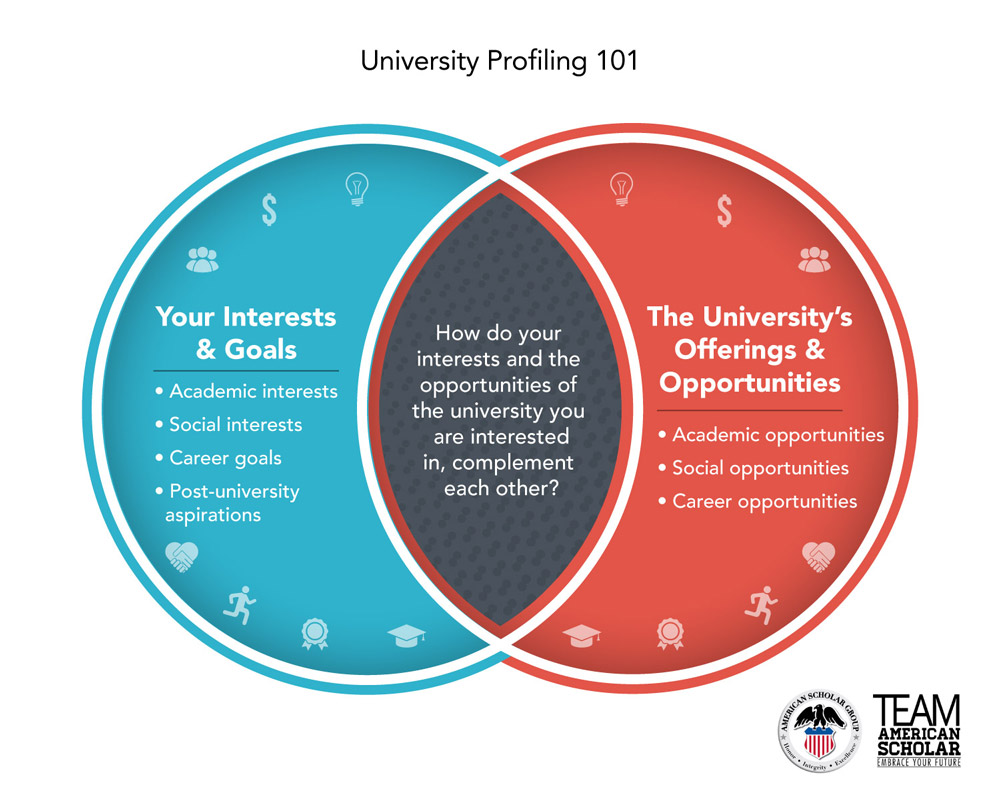The ASG Study in America Blog is a monthly column designed to provide international students relevant information for cultural immersion and academic success while studying in the United States. For more information about upcoming entries or to inquire about submitting entries, please contact advising@american-scholar.org.
May 2017
The Music of John Williams & What Movie Soundtracks Mean to Me
May 18th, 2017 / Written By: Jennifer Hoang

Music – our best friend – has been there for us for as long as we can remember. No matter what type of music your heart desires, it never fails to cheer you up and always makes it easier for you to get through the day. It connects with you through its lyrics and rhythms, but you and the music can also connect through films.
Movies would not be what we know today without their magnificent soundtracks. I recently went to see the Pittsburgh Symphony Orchestra play the music of John Williams. It was a magical evening. I was blown away by the powers movie music can bring and was impressed by how much music adds to the actions on screen. They played some significant tracks from Superman, Harry Potter, Hook, Raiders and the Lost Ark, Close Encounters, and of course, Star Wars. As I listened and watched the musicians swiftly swayed their instruments, scenes from the movies came cruising through my mind. And all of a sudden, I realized I was fighting villains with Superman, flying with Harry Potter, and standing next to Princess Leia.
Movie scores need to receive more appreciation. Can you imagine watching a movie without any sound effects or music? Music plays a big role in conveying emotions and feelings, and those feelings make movies memorable. Sometimes we take movie music for granted since it’s too obvious; it’s become an inseparable part of a film that we forget how important it is. And yet it takes an inherently incredible talent and months, or even years of effort to produce one beautiful film score.
To me, movie soundtracks are one of the most interesting types of music to listen to. They bring me closer to my imagination, and as far as I know, I’m a big, big dreamer.
March 2017
How to Write a College Application Essay
March 16th, 2017

Highlights:
- A personal statement is a story starring you.
- Creativity and authenticity are a plus.
- Even if you think you have nothing to write about, you do.
Before we talk about the nitty-gritty details of writing an essay, we need to clear up one major misconception: a paper and an essay are not the same thing. A paper is a formal argument supported by research and in-depth analysis; an essay is a true story in which you are the main character. We often use “paper” and “essay” interchangeably, but each is based on a very different literary tradition. (“Essay” is derived from the French “essai,” which means “to try” or “to attempt;” an essay is an attempt, an experiment.) In effect, the essay is your chance to tell your college a story about what a cool person you are. So what do we need to know about writing this essay?
Mechanics Are Still Important
When writing your essay, you don’t have to write as formally or technically as you would in a research paper. Not only can you have fun and experiment with your writing style, but you should! Nonetheless, it is still important to follow the basic mechanical rules of writing. Spelling, grammar, and proper punctuation are very important because they tell the college that you know the basic mechanical rules of writing.
Be Creative
As we mentioned above, this is not a paper, and so you shouldn’t write a five-paragraph paper. It might behoove you to write it out as one first in order to collect your thoughts and plot out the structure of your essay. Then write it as a poem and see how it changes. Maybe turn it into a song or rap next. Experiment! Read your essay out loud and to others. Keep the things that work and throw out the things that don’t. And to top it off, give your essay a catchy title.
What to Write About
The hardest part about writing an essay is figuring out what to write about. Not everyone has undergone some miraculous life-changing event, and so finding a topic that is not only informative but interesting can be a challenge. We’ve read numerous essays, and we’ve narrowed down a few common themes that tend to work well for the writers.
- Role Models and Family Members
Do you have a role model whom you look up to? Or maybe a family member you admire? Why is that? We often learn the values that are important to us from the people who most greatly influence our lives, and we don’t even realize it. By describing what makes these great people so great, you are able to show a college what values you hold dear, and by extension, what kind of person you are.
- Pets/Animals
It is difficult not to form a bond with a pet, and these bonds are always unique between person and animal. Animals live life on a smaller scale than humans, and so it is easier for us to understand what living is and how to do it by watching our animals. Writing about your relationship with your dog or cat can tell a college about your ability to think deeply, as well as showing your commitment for taking care of your responsibilities.
- Service Work
Since schools like to see that prospective students are altruistic in their general applications, the essay allows you to expand on the few words written on your resume. Schools can easily see if you are being insincere, though; writing about a service project you did because you had to is drastically less powerful than one that meaningfully impacted you. Remember that the key to writing a college application essay is to highlight your own qualities, and the best way to do that is to be as authentic as possible.
- Personal Projects
While you can certainly write an engaging story about a project you had to do for school, writing about a project you took upon yourself to accomplish is all the more interesting. Maybe you wanted to teach yourself an instrument or come up with a solution for some problem at your school. Whatever it is, writing about the experience will showcase your perseverance, problem-solving skills, and creative ability.
- Sports, Clubs, and Hobbies
Colleges want to see that their prospective students are outgoing and ready to engage with the world, and so it can be a good idea to write about what you like to do in your free time. Team sports highlight teamwork and cooperation; individual sports highlight perseverance and tenacity. Clubs and group hobbies also emphasize community-mindedness, as well as collaboration and foresight. Since these topics are ones you’re likely passionate about, you should have ample material to write about; be careful and make sure you err on the side of concision and remain focused.
- Overcoming Obstacles
Another way to discuss the qualities discussed above is to write about overcoming some struggle or obstacle. Be it physical or mental, social or academic, an obstacle is an obstacle. Perhaps you need to act creatively in order to surpass this quandary, or perhaps you need to endure and just work through the struggle. In any case, surmounting a difficult issue is a very human experience and says a lot about the person overtaking that hurdle.
Note: These are not the only themes you can write about. You may find a theme of your own to work with, or maybe you’ll create a hybrid of different themes. This is an essay about you, and so your essay should represent what it means to be you, not a standardized version of yourself.
Some Parting Words
The personal statement or personal essay should be one of the least stressful parts of filling out a college application. You should have fun with this assignment; show off your creative side! Nevertheless, some applications may require you to answer a few specific questions within your essay. If that is the case, you have to do it, but that doesn’t mean you can’t employ the creative tools discussed above.
Additional Resources
https://apply.jhu.edu/apply/essays-that-worked/2020/
John Hopkins University showcases examples of stellar essays that they have received within the past four years. They also offer the reasons why the essays were so effective.
https://www.conncoll.edu/admission/apply/essays-that-worked/
Connecticut College offers exceptional essays that stood out to their admission counselors. They also offer tips from the college’s Dean of Admission and Financial Aid.
http://www.cws.illinois.edu/workshop/writers/tips/personalstatement/
The Center for Writing Studies at the University of Illinois at Urbana-Champaign offers other guidelines on writing a personal statement. While more geared toward graduate and professional schools, they do offer beneficial tips, as well as poignant questions for self-reflection.
Critical Thinking skills are Essential for the Leaders of Tomorrow
March 2nd, 2017

The development of critical thinking skills comprises an essential component of the American Education system. American high school students are not taught to simply memorize facts to repeat on demand, but rather to carefully contemplate the causes and consequences of the issues that they study. The ability quickly to analyze problems and to brainstorm solutions is a key necessity in any job, in which critical thinking is required to perform. Mastery of these skills is essential for success in both the American higher education system, and also in the workforce of tomorrow.
What are Critical Thinking Skills?
“Critical thinking is the objective analysis and evaluation of an issue in order to form a judgement.” Rather than simply know the correct answer, critical thinking allows one to understand why an answer is correct, as well as equipping the student with the ability to discern the difference between correct and incorrect information. Additionally, critical thinking contributes to a fuller understanding of an issue by allowing one to comprehend the important contextual information related to the topic. Without context, raw facts are meaningless, however, critical thinking allows one to understand the context of the information they are receiving. This understanding is essential to developing logic based opinions and practical solutions to the issues of the day.
How are critical thinking skills taught?
Students are taught Critical thinking skills through a number of instructional exercises that are designed to engage students with the subject matter they are studying. These exercises can include analysis of historic documents, literature, and dramatic performances, as well as creative writing assignments. Multi-discipline and cross-discipline approaches to learning, in which bodies of knowledge and perspectives from multiple academic subjects are used to analyze a topic, provide an additional means of cultivating critical thinking skills among students. Additionally, with the broad adoption of the Common Core Curriculum across the United States, the teaching of critical thinking skills has gained an increased importance in the American education system. “Common Core describes itself as developing the critical thinking, problem-solving, and analytical skills students will need to be successful.” This emphasis on critical thinking is found in many areas of the American education system and helps to define the educational curriculum.
Why is Critical Thinking important?
The value of critical thinking skills extends beyond the classroom and into the highly competitive, globalized workforce of the 21st century. Employers seek candidates who can adapt to any situation, quickly able to process and respond to new information, and are able to rapidly develop solutions to problems as they arise. Individuals who have been able to master critical thinking skills will excel in all these areas and many more. Additionally, critical thinking skills are broadly applicable across all spheres of an individual’s life including both the personal and professional. By mastering and knowing how to apply critical thinking skills, an individual will prime them self for success in all their endeavors. The political and economic elites of the future will be leaders who possess the skills of inquiry and creativity necessary to develop effective and original solutions to the problems of tomorrow.
January 2017
How to Prepare for a U.S. Classroom
January 26th, 2017

Pursuing your education in the United States is at the same time exciting and challenging. You will have the opportunity to make new friends, learn new things, and have new experiences. However, you will also find yourself in a learning environment that may be very different from the classrooms that you are used to. Not only will classes be conducted in English, but the very manner of instruction and the expectations of students are quite different from those of other countries. How will you prepare to navigate these changed roles and expectations?
Language Aptitude & Public speaking
Although it may seem obvious that English proficiency is necessary for academic success in an American classroom, many international students arrive woefully unprepared in this area. While total immersion is one of the fasted and most effective ways to learn a new language, without a working knowledge of English it will be impossible to reach your full academic or social potential. This is especially true in those classes that require students to deliver speeches or presentations. The ability to persuade or to present information to a group of peers is an important component of many classes in the United States. The public speaking skills acquired through these exercises will be very beneficial to you later in life.
Time Management
Time management is an important skill for students at all levels. Knowing how to allocate your time wisely will pay significant dividends in both your academic and professional lives. Students should set time aside each day to complete homework assignments, review notes from class, and study for upcoming exams. Being proactive with time management will help to keep you from falling behind in your studies, and to identify areas where you are struggling before the day of the big test. Cultivating positive time management skills now will help you to succeed in your future studies, and in your professional career.
Note taking
Learning how to take notes quickly and efficiently is an important component of academic success. Students who attempt to write down every word that the lecturer says will likely fall behind in their notes and miss important information. It is necessary for students to develop the ability to discern the essential information given during a lecture from that which is less important, and to focus on recording the essential information first. Additionally, learning how to take notes in shorthand, or a standardized system of symbols and abbreviations that you can understand, will assist you in being able to keep up with the pace of the lecture in your note taking. Finally, while it may seem glaringly obvious, remember that you will need to review your notes later, so make sure you write legibly.
Critical thinking
One of the most important aspects of American education is the focus on critical thinking skills. American students are expected to do more than simply memorize information and regurgitate it on a test. Rather, students in the United States must have a complete grasp of the concepts they are taught and to explain them using their own words. The ability to think critically about a topic, and to understand the causes and consequences of an action or event, is integral to American Education. In many classes, knowing the correct answer is less important than being able to explain and defend the answer that you chose. While this may seem illogical at first, this approach actually helps to develop the logic based problem solving and communication skills that will be essential in your future studies and in your career.
Concluding Thoughts
While acquiring the skills discussed in this article will not guarantee your academic success while studying in the United States, learning and implementing these skills early will significantly enhance your educational experience in this country. Developing positive study skills and efficient test taking habits will also improve your chances of success in the American classroom. Future articles will discuss each of these skills in greater detail to ensure that you are prepared to study in America.
US University Admissions 101:
The ASG University Admissions Blog is a monthly column about topics relevant to international student university admissions, application prep, and the U.S. university search process. For more information about upcoming entries or to inquire about submitting entries, please contact Advising@American-Scholar.org
Exploring Your Academic Strengths and Choosing Your Major
January 26th, 2017

Highlights:
- Your major tells potential employers about your particular skill set and knowledge.
- Your major should reflect your prospective career goals.
- You have plenty of time to decide, so use that time wisely.
Before graduation, every college student will “declare” what academic discipline they will “major” in. Their major is a statement of academic rigor, content mastery, and skill specialization. A student’s major will greatly impact their future and career, so the decision is never an easy one, especially with so many majors to choose from. Below is a breakdown of the factors behind choosing a major to provide you with guidelines as you make this important decision.
Why Do You Need to Choose a Major?
Before we start talking about figuring out what we want to study in college, we need to understand why we need to decide. Why can’t I just study everything? The simple answer is that employers want employees with specific skills Therefore your major will show potential employers what your particular specialization is and your future opportunities expand or contract based on your academic concentrations. In short, your major is what your specialization is.
How to Choose a Major
Think About It
The best thing you can do is sit down and ask yourself what it is you want to do. This isn’t an easy thing to decide, and the more time that you devote to it, the happier you will be with your decision. The following are the types of questions you may want to consider:
- Think about your favorite class. Can you imagine taking an entire course on that topic in University? Can you imagine taking basic to advanced courses in that class throughout your entire undergraduate and if applicable, your graudate education?
- Think about a role model in an academic field. Is there a writer you really like? Film producer? Scientist? What classes did they have to take? What was their major?
- What do you see yourself doing in ten years? Can you see yourself doing that for ten more years? What major do you need to get there?
What Subjects Are You Passionate About? What Subjects Do You Naturally Excel At?
There is no one reason to choose a particular major over another; the reasoning is different for every student. Some students will choose their major because they are passionate about the subject and love learning about it. Some will choose a major because the classes are what they naturally excel at. Studying is less burdensome when the subject matter is genuinely interesting and/or easier for you. Studying a subject of personal interest makes for a happier student, and your general well-being can and will affect your academic performance.
What Are Your Career Goals?
Other students choose their major because they have a particular career they want to go into, and will need that major to do so. For example, someone wanting to design robots is better off with an engineering degree than with an English literature degree. This is not to say someone who studies English cannot be a robotics engineer, rather that employers are more likely to hire individuals from a related field and your future study prospects can depend on what your major is.
Will Your Investment Pay Off?
Students may also choose their major because they believe they will make a return on their investment, i.e. a major that will open career opportunities with copious financial rewards. Statistically, students who major in a STEM field (Science, Technology, Engineering, Mathematics) are the most likely to find gainful, lucrative employment upon graduation, while students majoring in the arts and humanities are the less likely.
Q: What if what I want isn’t what my parents want?
Like most college decisions, the choice ultimately affects your life the most, and so you need to be true to yourself. This doesn’t mean you can’t honor your parents’ wishes. One suggestion is to major in what you want and minor in what your parents want, or vice versa. You may want to attend a university that allows you to pursue both, then. Whatever you do, make sure to talk to your parents and open up a dialogue on the subject.
Major Decision Deadlines
The college or university that you attend will ultimately determine how soon you need to decide your major. Some schools will require you to decide soon after you begin your studies, while others will not require a formal declaration until the end of your sophomore year, or even later. This is important information to know before attending an institution, let alone choosing a major.
Additional Measures to Take
Talk With Experienced Individuals
You still have plenty of time to determine your major, but it’s never too early to start thinking about it. If you’re completely lost, take advantage of those around you who have gone through this process, be they parents, siblings, family friends, or teachers. What were their majors? Would they recommend them? Your guidance counselor will also have materials and resources to help you through this process before you get to college.
Go Online
Do some research on potential majors. What kind of career can an English major have? What are the job prospects for an engineering student? You can also find choosing-a-college-major quizzes online, as well as personality tests that might help steer your line of thinking. Below are links to useful resources, but they are by no means the only resources out there. Keep in mind that these quizzes aren’t perfect predictors, but the questions they ask are the same kinds of questions you should be asking yourself.
Concluding Remarks
The process of determining your major may seem daunting, but it does not need to be. Your high school experiences will give you a good idea about what subjects you like and those you do not like, so follow your intuition and pursue what will give you the happiest future.
Additional Resources
http://www.bestcolleges.com/resources/choosing-a-major/
A comprehensive breakdown of the most popular majors in relation to employment rates, alumni recommendation, annual wages for recent graduates, MBTI personality correlations, advanced degree necessity, market demand, expenses, and workload. Provides links to further additional resources.
https://bigfuture.collegeboard.org/majors-careers
Nested database for exploring majors by discipline or career opportunities, with easy access to filter between either.
http://www.luc.edu/undergrad/academiclife/whatsmymajorquiz/
A major-selection quiz provided by Loyola University Chicago. The quiz also provides links to the different academic major departments of LUC.
http://www.marquette.edu/explore/choose-your-major/
A quiz offered by Marquette University. This quiz provides a brief personality analysis with a list of recommended majors for that personality.
Presenting Your Best Self: Part 2
January 24th, 2017

In Part One of this topic we looked at how strangers from a school or business who are reading an application and conducting an interview can only see a limited picture of who you are. They won’t have the context your close friends and family use to interpret what you say and do. These people are trying to construct an image of you like someone working on a jigsaw puzzle but without many of the pieces.
It is important to consider which pieces of the picture are available to professionals who are evaluating you and to make sure that those pieces present the best possible version of you. To do this well, it is very helpful to get someone else to look over what you are sharing with the public in general and with the organizations to which you are applying.
The pieces we looked at last time were:
- Your social media profile
- Your degree of preparedness for a particular professional situation
This time we will be looking at:
- Your demeanor and presence in professional and formal situations
- Your business casual and business formal attire
- Your knowledge of appropriate social cues and conventions
These may seem like obvious things but many students applying to university and people applying to jobs neglect them and fail to be selected despite their qualifications in terms of grades, skills, and accomplishments. Make sure that you do not repeat their mistakes.
Your demeanor and presence in professional and formal situations
Imagine someone comes to see you because they want something. The person slouches in a chair, barely makes eye contact, and acts as if answering your questions is a chore. Another person comes to see you to request the same thing that day, but stumbles over every word, looks very nervous, and gives very long answers that don’t really give you the information you need. A third person then visits you after that and gives a series of answers in a mechanical way, answers that they were clearly coached to use that sound just the same as half of the people who come to see you.
Do any of these people sound interesting? Like people who are comfortable and able to think for themselves? Besides needing to be better prepared with thoughtful answers, their demeaner suggests disinterest, discomfort, and disengagement. It’s not just the poor answers that are damaging their chances to get what they want but how the answers are delivered. That makes poor answers sound even worse.
There are cultural factors at work here as well. In North America, you will want to be polite but also friendly and engaged. Practice working on the following:
- Making eye contact while answering questions with a practice partner
- Smiling
- Speaking with confidence. No mumbling or whispering your answers
- Listening carefully and showing signs of interest in what is being said (a nod, a sound to indicated you are following along, eye contact)
- Being comfortable. This can be hard in stressful situations, but using breathing techniques, mental focus, meditation, and so on can help. The more you practice and the more actual interviews you do, the more comfortable you will be and the more confidence you will project
- Answering common interview questions in 30 seconds. It can be a little over or under but not less than 20 seconds and no more than a minute unless it is a complicated question or you are answering a follow-up
The more you can do these things, the more you will appear competent and trustworthy.
Your business casual and business formal attire
If you aren’t sure if you have business appropriate clothes, then:
- Do a quick search online for the terms “business casual” and “business formal”
- Go out and purchase outfits matching those terms that flatter your appearance
In the U.S., you will be expected to behave like an adult in professional situations once you graduate from high school or turn eighteen years old. If you want to study at university or work in the United States, you have to have at least one good outfit you can wear to events such as interviews.
Your knowledge of appropriate social cues and conventions
This piece of the puzzle also has some cultural aspects to it, yet you will nonetheless give an impression based on whether or not you are ready to do little things like the following:
- Arrive at least ten to fifteen minutes early for your appointment. Even earlier if you are specifically instructed to do so
- Offer or accept a firm but not tightly gripped handshake upon meeting your interviewer (and in some cases before leaving)
- Participate in some brief small-talk if initiated by your interviewer
- Send a quick thank you note by email within a day after the end of the interview
The thank you note should be brief, mention something specific you found interesting or helpful during your visit, and that’s it. Don’t write lots of compliments or give thanks multiple times. The note should go to the person or persons who conducted the interview. Do not send gifts to the interviewer or to the admissions department.
Go out and succeed!
There is more you can do and not do, and there are many things written about good interview preparation, but if you think in terms of puzzle pieces and what a stranger would put together based on them, you can greatly improve your chances of creating a favorable impression and being selected for admission (or a job, or a loan, etc.). Good luck with your interview and remember to show them the best possible version of you: comfortable, capable, and confident.
Presenting Your Best Self: Part 1
January 19th, 2017

There is quite a bit of advice about college interview out there, such as what questions to expect and how to prepare for them as well as how to dress. That advice is sound, as your interviewers will take note of your presentation. Yet it is worth pulling back to see the bigger picture: students graduating from secondary school need to be able to present their best self in every professional situation.
Such situations include:
- Campus visits to tour universities
- University interviews (in person and online)
- Internship and scholarship interviews
- University classrooms
- Job interviews
- Business meetings with (potential) clients
- Meetings with bank and loan officers
- Formal meetings with government officials
In other words, curating your public, professional image matters beyond just meeting to impress a college representative. It involving cultivating an awareness of how others will perceive you and managing the impression that you make throughout your adult life. While the immediate goal is to boost the chances of admission to a particular set of tertiary schools, the long-term goal is to begin showing that you are aware of how to show respect for yourself and for those with whom you wish to do business.
Piecing together your Public Image
It can be hard to appreciate how others see you, especially people who don’t know you. Our friends know what we are like, what we mean by what we say and do, our sense of humor, and the story behind inside jokes that are shared privately. But how would someone who has never met you react to the way you dress? To your demeanor? To what you write in an application or a resume?
A useful way to think about the situation is to picture yourself as a jigsaw puzzle but with most of the pieces missing. Strangers such as university admissions officers and hiring managers only have access to a limited number of the puzzle pieces that make up an image of the whole version of you. Think about which pieces they have access to and what they might say about you in the absence of any other context. This can be hard, so having someone you trust look at these pieces can be very helpful.
Here are some common puzzle pieces that you should carefully inspect:
- Your social media profile
- Your degree of preparedness for a particular professional situation
- Your demeanor and presence in professional and formal situations
- Your business casual and business formal attire
- Your knowledge of appropriate social cues and conventions
Finding YOUR Perfect College: Tips for Making Your University Search More Meaningful
January 17th, 2017

Highlights:
1.) Not all information about a college is relevant to you.
2.) The social facilities of a college are just as important as the academic ones.
3.) The best person to determine what is and isn’t important is you.
At the American Scholar Group (ASG), we recognize that the university admissions process can be intimidating, especially for international students who may not where to start or how to do s because they lack the background knowledge and experience that U.S. students and families possess. The U.S. university admissions search process can be tedious and very time-consuming. It’s important to acknowledge and accept this from the beginning. All colleges and universities present an enormous amount of information to prospective students, and it can be difficult to decide what information is important and what is not. This article aims to give each student a set of guidelines for making his/her university search more personally meaningful!
Don’t Simply Rely On:
Rankings
University Rankings from sites like USNEWS give us a good indication about an institution’s strengths and reputation. However, relying on rankings alone to make a decision is often short-sighted because they fail to provide you a full picture of the college’s offerings. Referring to rankings may be a good place to start your search, but completing it requires more independent research.
Commonly Used Statistics
Colleges will throw many different statistics at prospective students to make the college seem more impressive, but many of these statistics have little to no relevance on the student’s academic experience. Every college will boast a low student-to-faculty ratio or a low average class size. The actual numbers will vary from institution to institution, and course to course. Your freshman introductory to biology class may very have 300 students but a higher-level class in advanced calculus could only have 7 students.
What to Look for Academically:
Majors/Minors/Program Offerings
It is perfectly alright not to know what major you want when you start college, but it is important to be aware of the programs and options the college offers you! Every college will have an English department and Mathematics department. Every college has a Business, Psychology, Biology, Chemistry, Political Science, History, and Modern Languages department. Unless a college has high renown in one of these fields, choosing a college simply because it offers one of these programs is not enough. Instead, if you are interested in studying these subjects, be sure to do your homework. What programs and resources does the college offer? Do you have opportunities to do research? Internships? Are there specific specializations within majors that cater to your interests?
Graduation Requirements
Arguably the most important academic factor, the graduation requirements of an institution will determine what you have to do during your four years at college. From mandatory study abroad programs to compulsory chapel hours, required internships to senior projects, it is important to make sure you know what your expectations are before applying and potentially committing yourself to an institution. Graduation requirements vary from college to college, the requirements vary within the disciplines themselves of those colleges. Getting into a top institution may be very important, but your academic experiences over the next 4 years is arguably more important to you in the long run.
Gen Eds
Short for General Education courses. Large universities will require their students to take classes from multiple different disciplines to promote a holistic education. This can be useful for students who are unsure what they want to study when they start their undergraduate career, but it can also mean that students must take classes that they have no interest in. Liberal arts schools typically give their students more freedom in choosing classes, but the onus falls on the student to figure out what they specifically want to study. Gen Eds can limit your ability to double major or minor, but conversely, they can also give you the opportunity to explore topics of interests you may not otherwise take anyway. Note: Liberal Arts colleges often give students more flexibility for choosing required classes while large institutions may have more stringent uniform requirements.
Session Composition
Like high schools, colleges have their own schedules for when they have classes and when they don’t, but not every schedule is exactly the same. Most schools operate on a fall and spring semester, but others may have trimesters or quarters, as well as intersessions between major semesters. The composition will determine how many weeks out of the year you will be studying, i.e. how many weeks you will not be working, interning, or vacationing. Although very simple, a college’s session composition can influence your time management needs and planning greatly.
What to Look for Socially:
Size and Population of Student Body.
Are you interested in attending a large university with over 20,000 people or would you rather go to an institution with 2000 people? The size of an institution’s student body can influence your experience in many ways including, how many classmates you have, your access to professors and opportunities, among other things. You may be considering graduate study one day. If so, it’s important to develop strong relationships with your undergraduate professors who may one day write your recommendation letters. This is easier to do at a smaller institution than at a larger institution where professors have limited time for a greater number of students, for example.
Sports and Special Interest Clubs.
Does this institution offer you extra-curricular options that help advance a current interest you already have or explore any interests you have but otherwise do not have the opportunity to cater to? Your social experience is tantamount to your academic performance, and personal extracurricular activities can be the difference between a meaningful college experience and a miserable one. Extra-curricular options matter.
Academic Social Opportunities.
At the collegiate level, the line between hobby and career begins to blur, and there is often room to use the former to bolster the latter. Theatrical performances, symphony concerts, and research fellowships can make you marketable beyond your degree. It is important to keep in mind that where there are more opportunities, there is also more competition.
Campus Location.
This is rather self-explanatory. Invariably, there will be a time on campus when you are bored, and the distance to the nearest big city will become very important. Colleges in the north will have snow. Is weather and proximity to city-life important to you? These are factors that can influence your experience and therefore need to be considered.
Room and Board Opportunities and Food Services Options.
Room refers to where you will be living and board to what you will be eating. How many food options does this campus have? Do you have access to options outside of your campus? Are you expected to live on campus? If so, for how many years? An old, cold dorm room and bland, few food services options can affect your social experience, even if you are in the best academic program. Therefore, it’s important to learn ahead of time what these options are. A word of caution: college tours will only show you the nicest dorms, and the nicest dorms are typically taken by the upperclassmen.
In Conclusion:
The guidelines and should not be used as the definitive criteria for choosing a college. The purpose of these guidelines is to get you thinking about what is important to look for in a college, namely what is important to you on a personal level. Ultimately, the college you go to affects your life the most, and so you want to make the best decision you can.
ASG Advisors have created the following graphic below to help you with your university search process. In all cases, it’s important to first determine you career goals and the academic and social interests you wish to pursue in university. These can be very specific or varied. Then, in your search, be sure to research what options and opportunities a particular university offers and understand how they complement your interests.
Action Steps:
Already familiar with the guidelines above? Or perhaps you have already taken the necessary steps above and need further guidance. Below are some action steps for how you can continue your search:
1.) Get in Touch with Admissions Representatives
Contacting the admissions department is easy and allows you to make yourself known to the representatives that will likely review your application. You can also use the opportunity to ask questions and set up appointments or meetings.
2.) Request more Information
Most university websites give you the option to request more information about the university or even specific departments within the university. Provide your mailing address and wait to receive relevant mailings from the institution
3.) Schedule a Campus Tour or an Overnight Visit
Visiting a campus gives you the best idea for learning about the institution’s academic and social environment. Staying overnight takes this one step further and gives you the opportunity to meet current students whom you can ask questions about their day-to-day experiences
Do you have questions, or something to share? We would love to hear from you! Contact us at Advising@American-Scholar.org
4 Useful Websites for Your University Search
January 17th, 2017

With over 4,000 institutions of higher learning in the United States offering a wide variety of degree programs and campus experiences, selecting a university that meets your individual needs and desires can be a challenging and time consuming process. Luckily there are many useful online resources that can help you narrow your search. We listed some of our favorite resources below to help you begin!
College Board – You may be familiar with College Board from preparing for your SATs, however College Board also contains a tremendous amount of useful information for the prospective college student. In addition to providing relevant information regarding particular institutions, including programs offered and admissions statistics, College Board also provides detailed information on majors and professional fields. This section of the website allows you to explore careers available with a given major, as well as the types of course work you will need to complete. For most students, College Board allows them to gather the greatest amount of relevant information in the shortest time.
US News & World Report – The US News & World Report website comprises the starting point for many prospective student’s university search. This website provides the most authoritative rankings of over 1,800 colleges and universities in nearly 50 different categories, as well as offering basic statistical information about these institutions. Additionally, the website offers advice columns, including one tailored to international students, on successfully navigating the university admission process and on succeeding while at university.
College Scorecard – This resource, sponsored by the U.S. Department of Education, allows prospective students to search for appropriate institutions by using several parameters including degree programs offered, location, and size. This information is important because these factors will have a much larger influence on your college experience than will an institution’s rank. Of special significance, College Scorecard allows users to make a side-by-side comparison of multiple universities’ tuition, graduation rates, and the average annual salary of alumni, streamlining the comparative process.
The Princeton Review – Offering yet another ranking service, as well as resources for the university selection and admission processes, The Princeton Review is a great resource for those wishing to gather as many perspectives as possible on their prospective universities. The Princeton Review’s ranking methodology is significantly enhanced through the inclusion of actual students own opinions of their universities, rather than simply relying on statistical data. Additionally, The Princeton Review employs a staff of former admissions counselors to help students navigate the often confusing world of university admissions.
It is important to remember that no single website or other resource can provide all the answers that you will need to make an appropriate university selection and therefore it is necessary to gather information from as wide a variety of sources as possible. While ranking systems such as that used by US News can be useful, so many factors go into a student’s college experience that it is impossible to accurately quantify universities in this way, necessitating the use of other resources. University webpages are especially important for providing a wealth of information about specific university programs, resources, and opportunities that are meaningful to your academic, social and career goals. No resource can be more helpful for learning about the university you wish to apply to than the university itself!
Do you have questions? We’d love to hear from you! Contact us at Advising@american-scholar.org



